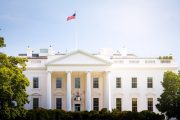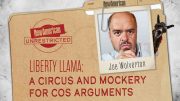
Two rulings by the Supreme Court on Wednesday not only affirm the First Amendment to the U.S. Constitution, they also hearten pro-life constitutional conservatives who hope the rulings set the stage for a full review of the constitutionality of ObamaCare (aka the Affordable Care Act, or ACA) by the high court in the fall.
The first ruling, in a 7-2 decision, concerned the Little Sisters of the Poor, and finally puts to rest the question whether the Trump administration, through an Executive Order to the Department of Health and Human Services, could expand the exemption under which faith-based ministries such as the Little Sisters could avoid having to provide contraceptive health services to their employees.
When ObamaCare was first foisted upon the American citizenry in 2010, it specifically exempted churches from providing contraceptive healthcare coverage but said nothing about faith-based ministries. So, under ObamaCare, the HHS ruled that religious non-profits such as the Little Sisters of the Poor had to comply, or suffer the consequences of huge fines.
During President Trump’s first year in office, he ordered the HHS to issue a new rule expanding the exemption. Several states sued, claiming that Trump had overreached. The opinion of the high court was penned by Justice Clarence Thomas, who wrote, “Consistent with their Catholic faith, the Little Sisters hold the religious conviction ‘that deliberately avoiding reproduction through medical means is immoral.’”
He explained why the court reversed a lower court’s ruling, stating that the Trump administration had not exceeded its authority by issuing the new rule that expanded the exemption:
For over 150 years, the Little Sisters have engaged in faithful service and sacrifice, motivated by a religious calling to surrender all for the sake of their brother. “[T]hey commit to constantly living out a witness that proclaims the unique, inviolable dignity of every person, particularly those whom others regard as weak or worthless.”
But for the past seven years, they — like many other religious objectors who have participated in the litigation and rulemakings leading up to today’s decision — have had to fight for the ability to continue in their noble work without violating their sincerely held religious beliefs.
After two decisions from this Court and multiple failed regulatory attempts, the Federal Government has arrived at a solution that exempts the Little Sisters from the source of their complicity-based concerns — the administratively imposed contraceptive mandate.
We hold today that the Departments had the statutory authority to craft that exemption, as well as the contemporaneously issued moral exemption.
We further hold that the rules promulgating these exemptions are free from procedural defects. Therefore, we reverse the judgment of the Court of Appeals.
The second case, Our Lady of Guadalupe School v. Morissey-Berru, although less known, is just as important as Little Sisters. The Supreme Court also ruled 7-2 in favor of the two religious schools who argued that they should not have to face discrimination lawsuits brought by former teachers.
Justice Samuel Alito wrote the majority opinion:
The religious education and formation of students is the very reason for the existence of most private religious schools, and therefore the selection and supervision of the teachers upon whom the schools rely to do this work lie at the core of their mission.
Judicial review of the way in which religious schools discharge those responsibilities would undermine the independence of religious institutions in a way that the First Amendment does not tolerate.
Applause for the ruling came from Adrian Alarcon, spokesman for the Archdiocese of Los Angeles: “Religious schools play an integral role in passing the faith to the next generation of believers. We are grateful that the Supreme Court recognized [that] faith groups must be free to make their own decisions about who should be entrusted with these essential duties.”
The lead counsel for Becket, Eric Rassbach, who argued the case for the schools, called the decision a “huge win”:
Today is a huge win for religious schools of all faith traditions. The last thing government officials should do is decide who is authorized to teach Catholicism to Catholics or Judaism to Jews. We are glad the court has resoundingly reaffirmed that churches and synagogues, not government, control who teaches kids about God.
In the fall, the high court will take on a lawsuit brought by 20 states, led by Texas, calling for the elimination of ObamaCare. It will be combined with another lawsuit brought by 17 other states, led by California, seeking to preserve the law.
The Trump administration has weighed in on the side of the 20 states, filing a brief that asks the high court to consider “whether, as a result of the elimination of the monetary penalty for noncompliance with the ACA’s minimum-essential-coverage requirement … that requirement is no longer a valid exercise of Congress’ legislative authority.” And if so, “the remainder of the ACA’s provisions are inseverable from it.”
Therefore, according to the government’s brief, “the judgment of the court of appeals should be affirmed insofar as it held that the individual mandate is unconstitutional, and this Court should further hold that the insurance provisions injuring the individual plaintiffs are inseverable from the mandate and the remainder of the Act.”
Naturally, totalitarians fear the worst. House Speaker Nancy Pelosi issued a statement: “President Trump and the Republicans’ campaign to rip away the protections and benefits of the Affordable Care Act in the middle of the coronavirus crisis is an act of unfathomable cruelty.” Former Vice President Joe Biden spoke, denouncing Trump’s position: “It’s cruel, it’s heartless, and it’s callous.”
Constitutionalists are hoping that the high court finds ObamaCare unconstitutional.
Image: Matt Anderson/iStock/Getty Images Plus
An Ivy League graduate and former investment advisor, Bob is a regular contributor to The New American, writing primarily on economics and politics. He can be reached at [email protected].




